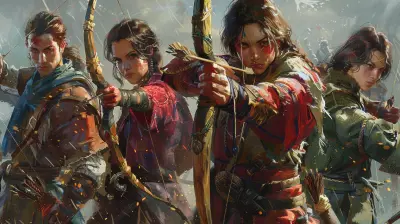Crafting, Loot, and Economy Systems in RPGs: Balancing Rewards and Risks
2 March 2025
Role-playing games (RPGs)—they’re like a giant playground where you can be a sword-swinging warrior, a spell-casting mage, or a sneaky rogue looting treasure in the dead of night. At their core, RPGs are about adventure, character progression, and, let’s face it, hoarding shiny things. But if there’s one thing that keeps players coming back, it’s the intricate systems that govern crafting, loot, and the economy in these games.
You’ve probably spent countless hours farming rare materials, obsessively comparing gear stats, or painstakingly deciding whether to sell that rare drop you might never use. And while these systems can be deeply rewarding, they can also drive players absolutely bonkers when not done right. So, let’s break it all down: how do crafting, loot, and economy systems in RPGs work, and how can developers strike the perfect balance between risk and reward? 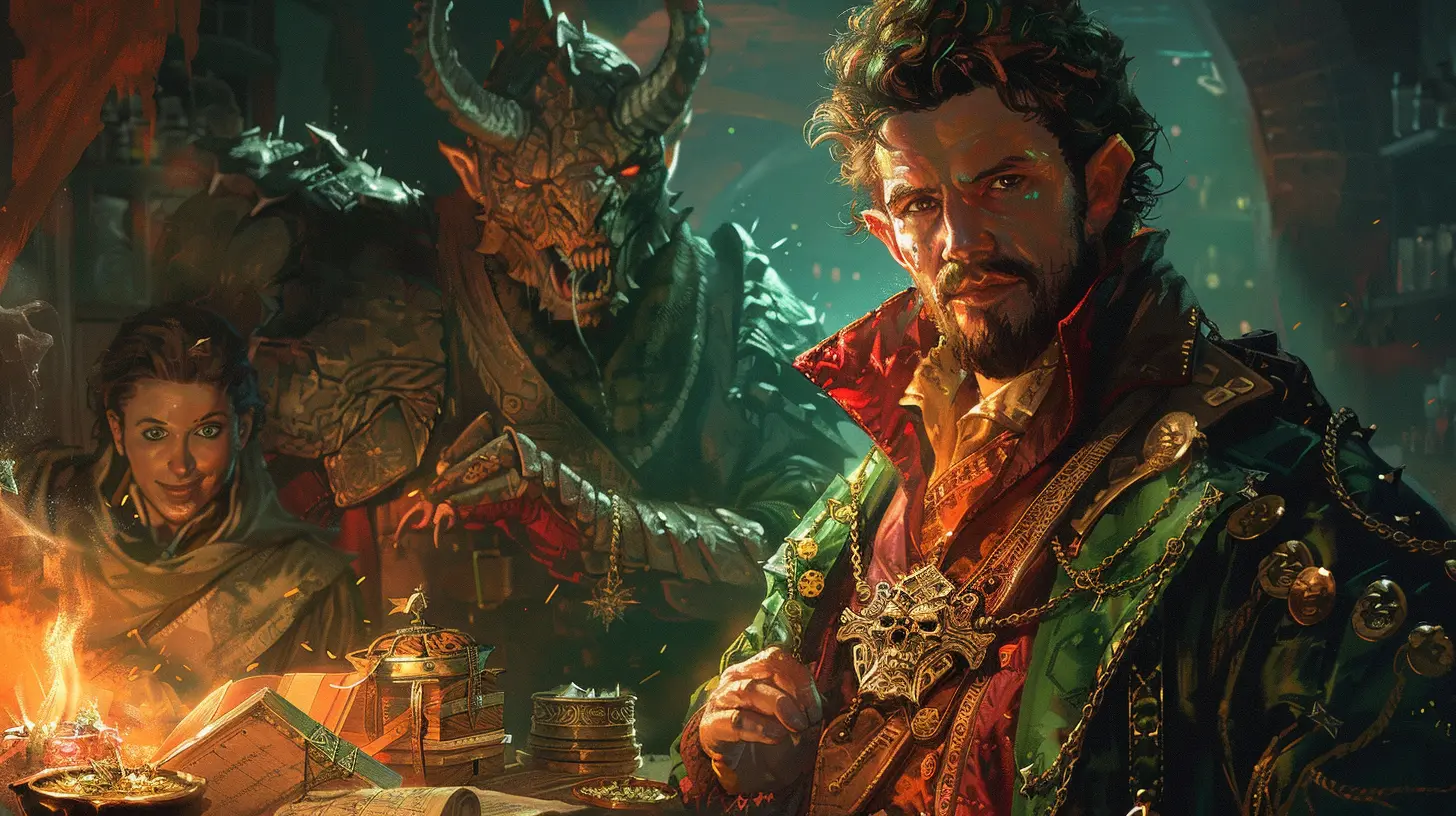
The Joy (and Frustration) of Crafting Systems
Crafting in RPGs is like cooking a gourmet meal… but without the dirty dishes. It’s a feature that allows you to create everything from basic potions to legendary weapons. But here’s the catch: crafting systems are only as good as the effort-reward balance they strike.Why Do We Love Crafting?
Let’s be real—there’s something insanely satisfying about collecting raw materials and turning them into something powerful. It gives players a sense of agency and creativity. Don’t have the perfect sword? No problem. Gather some iron, an enchanted gem, and a handful of rare dragon scales, and boom—you’ve got Excalibur 2.0.Crafting also gives players goals outside of the main storyline. It’s especially rewarding in open-world RPGs where exploration matters. Stumbling upon rare crafting materials during a side quest feels like finding money in your jeans pocket—it’s unexpected and thrilling.
Where Crafting Systems Can Go Wrong
But here’s the kicker: crafting can feel like homework if it’s too grindy. Nobody wants to spend 10 hours farming for a single piece of ore only to discover they’re missing five other components. And don’t even get me started on crafting menus that look like you need a Ph.D. to understand them.Some games fall into the trap of making crafting overly complicated—endless recipes, obscure materials, and no clear direction on what’s worth crafting. It’s like trying to bake a cake, but the recipe is in ancient Latin and the ingredients are scattered across five different grocery stores. 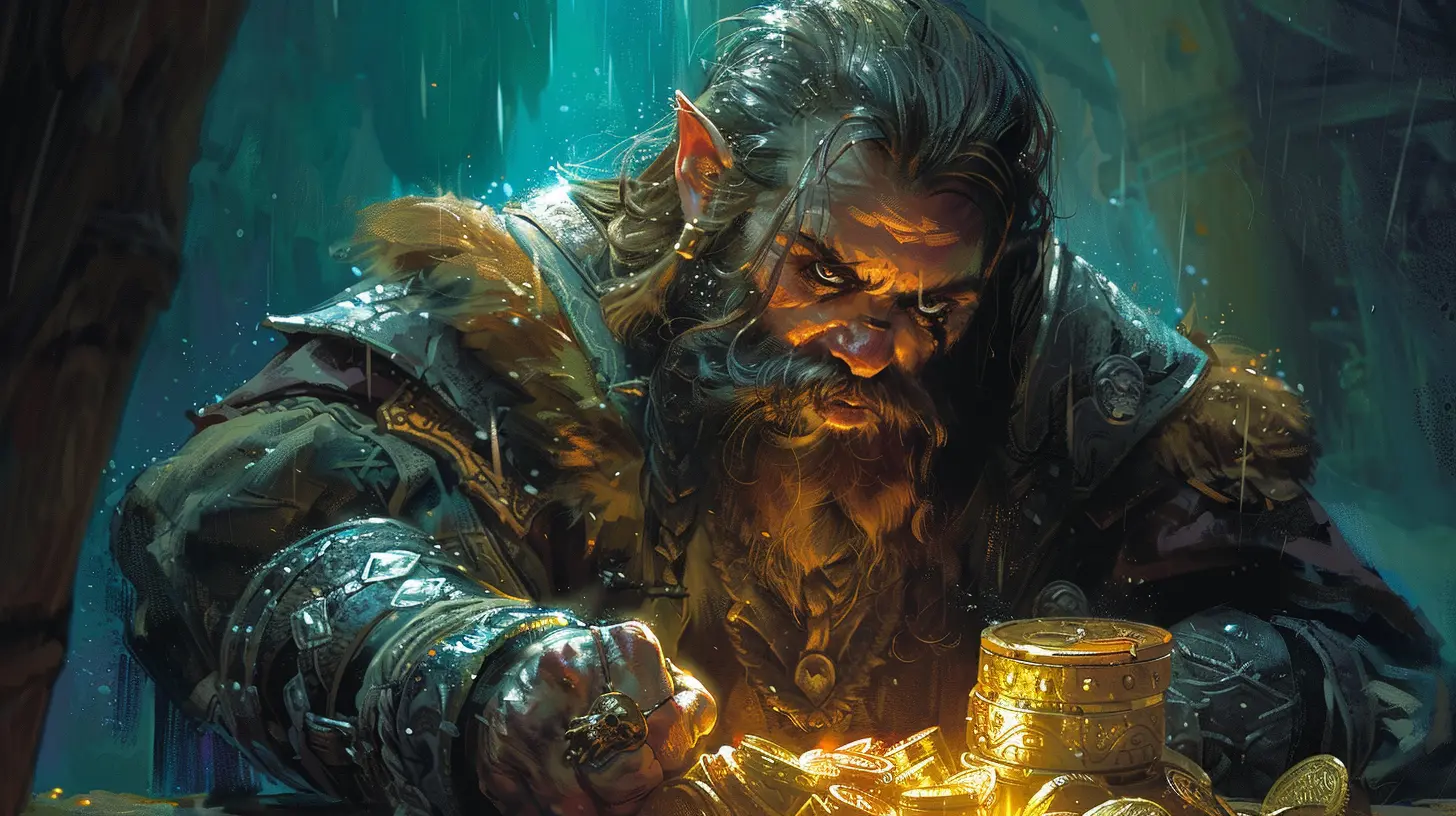
Loot Systems: The Thrill of the Chase
Loot in RPGs is the digital equivalent of opening a surprise gift box. You never know what you’re going to get—a shiny new sword, a rare piece of armor, or, occasionally… a pile of garbage. But hey, that randomness is part of the magic, right?Why Loot Keeps Us Hooked
Loot systems tap into something primal in us—a love for surprises and the chance to strike gold. It’s why loot drops are often compared to gambling. Each enemy you defeat or chest you open feels like pulling the lever on a slot machine. When you finally get that ultra-rare item you’ve been dreaming about? It’s a dopamine rush like no other.Loot systems also support variety. They constantly give players new toys to play with, keeping the gameplay fresh. Plus, they encourage experimentation. Ever picked up an unusual weapon or piece of gear and thought, “Hmm, let’s see how this fits my playstyle”? That’s the beauty of loot.
The Dark Side of RNG
Ah, RNG (random number generation)—the three letters responsible for both triumph and despair in RPGs. While randomness can make loot exciting, it also introduces frustration when lady luck decides to ghost you. How many times have you defeated the same boss over and over, hoping for a rare drop, only to walk away empty-handed?On the flip side, loot that’s too predictable can feel boring. If every chest contains the same predictable rewards, it zaps the excitement out of exploration. Players start thinking, “Why bother?” Striking the balance between randomness and fairness is a tightrope walk for developers. 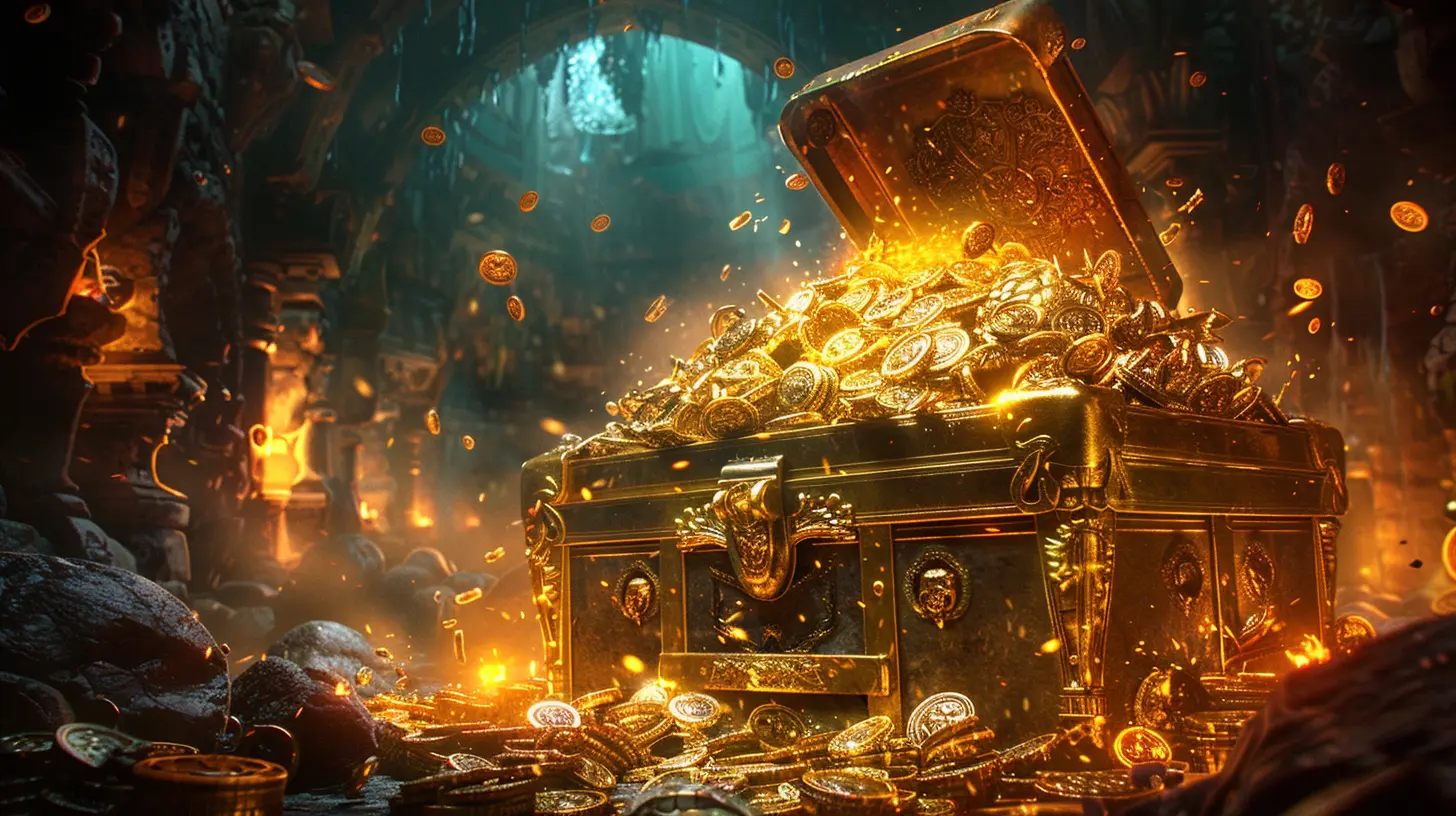
The Economy: A Game Within the Game
In many RPGs, the in-game economy is just as important as the fighting and exploring. Gold, credits, or whatever currency the game uses often dictates how powerful or prepared a player can become.Why RPG Economies Matter
A good economy system adds another layer of immersion to an RPG. It makes the world feel alive. Merchants haggle, markets fluctuate, and players have to make tough decisions about how to spend their hard-earned currency. Do you save up for that legendary sword, or do you splurge on health potions to survive your next dungeon crawl?And let’s not forget trading. Some RPGs allow players to trade items with each other or with NPCs, which can create a mini-game of its own. Bartering with a stubborn merchant for a discount feels weirdly satisfying, doesn’t it?
When Economies Fail
However, in-game economies can quickly spiral out of control. Inflation is a common problem—when gold becomes too easy to earn, prices skyrocket, and the currency loses its value. On the other hand, economies that are too stingy can make players feel like they’re constantly broke, which isn’t exactly fun.Then there’s the issue of overpowered items being locked behind absurd price tags. If the best sword in the game costs ten times what the average player can earn, it turns into a chore rather than a reward. Game economies need to feel balanced—rewarding players for smart decisions without punishing them for exploring other aspects of the game. 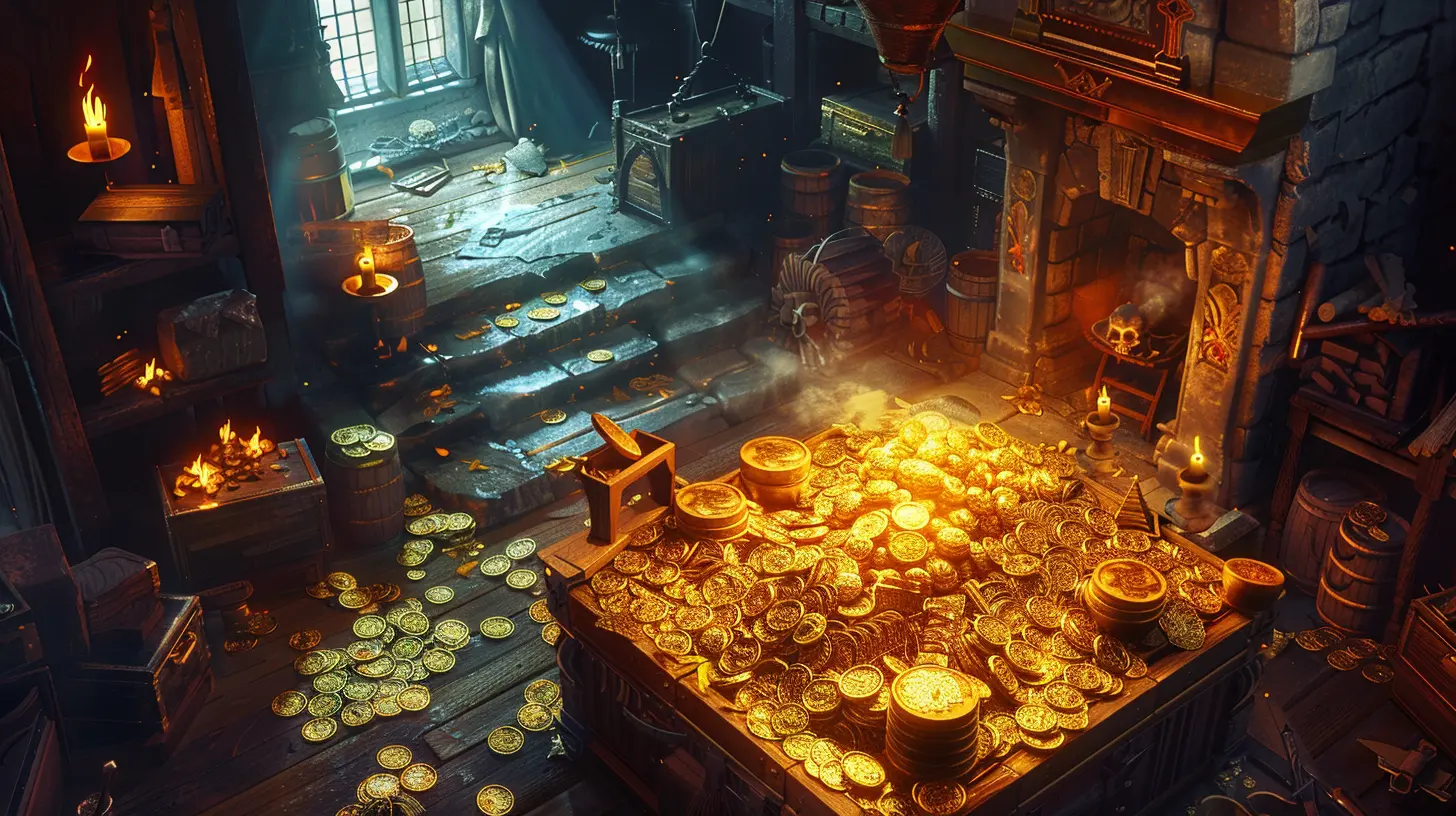
Balancing Rewards and Risks: The Developer’s Dilemma
Designing crafting, loot, and economy systems is no small feat. Developers have to cater to casual players who just want to have fun, as well as hardcore gamers who will dissect every mechanic down to the decimal.Keeping Risk and Reward in Check
The most successful RPGs make players feel like they’ve earned their rewards. Crafting a legendary sword should take effort, but not to the point where it feels like a full-time job. Similarly, loot should have enough randomness to keep things interesting while ensuring players aren’t endlessly grinding for that one rare item.Economy systems need to be flexible enough to support different playstyles. Want to hoard gold until you can buy the best gear? Cool. Prefer selling loot for quick cash? That should work, too. The key is creating multiple paths to success so players feel like their choices matter.
Learn from the Masters
Some RPGs nail this balance. Games like The Witcher 3 and Skyrim manage to integrate crafting, loot, and economies in ways that feel rewarding without being overly punishing. On the flip side, even great games can stumble—overly convoluted crafting systems or loot tables that feel unfair can frustrate players and hurt replayability.The Player’s Role in the Equation
At the end of the day, RPGs are a partnership between the developers and the players. Developers design the systems, but players decide how to engage with them. As players, we have to remember that not every crafting recipe, loot drop, or economic decision will go our way—and that’s okay. Sometimes, the fun is in the journey, not just the destination.So the next time you’re cursing RNG or wondering why dragon scales are so hard to come by, take a step back. Think about how these systems shape your experience, and appreciate the work that goes into making them feel (mostly) balanced.
Final Thoughts
Crafting, loot, and economy systems are the lifeblood of RPGs, offering players endless opportunities for creativity, exploration, and strategy. When done right, they can make a game unforgettable. But striking that perfect balance between rewards and risks? That’s the ultimate challenge for developers.Whether you’re crafting epic gear, hunting for legendary loot, or managing your in-game funds, remember that these systems are meant to enhance your journey, not define it. So dive in, take some risks, and enjoy the ride—after all, that’s what RPGs are all about.
all images in this post were generated using AI tools
Category:
Role Playing GamesAuthor:

Jack McKinstry
Discussion
rate this article
5 comments
Makayla Morris
Great insights on balancing crafting and loot systems—crucial for enhancing RPG player engagement!
April 7, 2025 at 3:26 PM

Jack McKinstry
Thank you! I'm glad you found the insights valuable for enhancing player engagement in RPGs.
Kayla Robinson
Crafting in RPGs is like my attempts at cooking—somehow I always end up with a ‘mystery stew’ instead of a gourmet meal! Balancing rewards and risks is key, but let’s be honest: I’ll take 99% loot and 1% risk every time. Who’s with me on this culinary adventure?!
March 14, 2025 at 3:55 AM

Jack McKinstry
Absolutely! Balancing rewards and risks is essential, and who wouldn't want the thrill of 99% loot? Let’s embrace the chaos of crafting together!
Valen Foster
Crafting in RPGs: where your loot is almost as legendary as your patience! Happy gaming!
March 6, 2025 at 5:38 PM

Jack McKinstry
Thank you! Balancing crafting rewards and patience is key to an engaging RPG experience. Happy crafting!
Regina Pope
Is the true treasure hidden in the risks we dare to take?
March 3, 2025 at 3:45 AM

Jack McKinstry
Absolutely! The true treasure often lies in the balance between risks and rewards, enhancing player engagement and creating memorable experiences in RPGs.
Josephine Bell
Balancing rewards and risks is the heart of RPGs! Crafting and looting create immersive worlds where players thrive on challenge and creativity. Let’s celebrate the intricate dance of economy systems that keep us engaged, pushing us to explore, innovate, and conquer! Adventure awaits—dive in and unleash your potential!
March 2, 2025 at 4:55 PM

Jack McKinstry
Absolutely! The interplay between crafting, looting, and economy systems truly enriches the RPG experience, encouraging players to embrace challenges and unleash their creativity. Adventure is indeed at the heart of it all!




